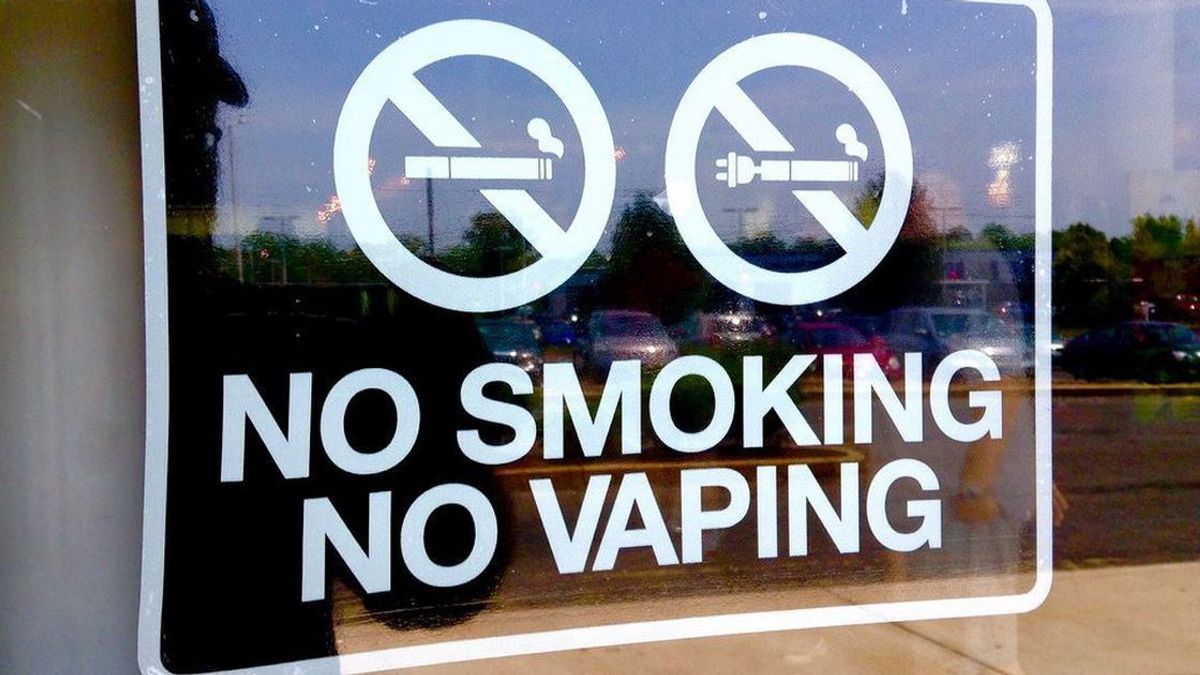JAKARTA The World Health Organization (WHO) has issued a call for countries to start banning all vapes with taste. WHO stated that it is necessary to take urgent steps to control the use of e-cigarettes or vapes.
Previously, some researchers, activists, and the government viewed vape as a major tool to reduce deaths and disease caused by conventional cigarettes.
Instead of helping smokers stop, WHO says vape has the potential to encourage nicotine addiction to non-smoking people, especially children and adolescents.
"Children are recruited and framed at an early age to use e-cigarettes and may be addicted to nicotine," said WHO Director-General Dr Tedros Adhanom Ghebreyesus, quoted from the WHO's official website.
I urge countries to implement strict measures to prevent absorption to protect their citizens, especially children and adolescents.
In recent years, vape has been very popular among smokers. He said, contemporary cigarettes can help stop conventional cigarette addiction.
Especially in Indonesia, vape first entered the country in early 2012, along with the development of communication and information media. Vape is increasingly widely known by the public because it is considered to have a lower side effect than conventional cigarettes. At that time, the popularity of vape was also assisted by many people who brought vape home to Indonesia after going abroad.
According to a report by market and consumer data company, Statista, entitled Statista Consumer Insights, Indonesia is the world's largest vape user country. It is recorded that 25 percent of respondents from Indonesia admit to using e-cigarettes in the form of pens at least occasionally.
"In Indonesia, as many as one in four people surveyed by Statista Consumer Insights said they had used vape at least once," Statista reported on May 31, 2023.
Meanwhile in Europe, the same report shows the vape is quite popular in Switzerland with 15 percent of respondents and the UK with 13 percent of respondents. The use of vape in the United States and Canada is also quite popular even though it is under Indonesia.
The survey was conducted online with around 1,000-9,500 respondents aged 18-64 years from a number of countries, including Indonesia. The survey was conducted in the period January to March 2023.
The popularity of vapes has continued to climb in recent years as vapes are also generally considered less dangerous than smoking tobacco. Vape is claimed to be a tool to help quit smoking tobacco.
The UK National Health Service even briefly released a review in 2021. From this review, the NHS claims people who use e-cigarettes to quit smoking, along with direct support from experts, have a twice as high chance of succeeding from people who use other nicotine replacement products, such as koyo or rubber candy.
However, claims that e-cigarettes are less risky than conventional cigarettes appear to be just an illusion. Over time, the danger of vaping is even more visible.
Citing Care, vape works by heating nicotine extracted from tobacco, taste, and other chemicals to produce the aerosol inhaled. Tobacco cigarettes contain more than 7,000 harmful chemicals, a much larger amount than electric cigarettes.
Even though e-cigarettes have fewer harmful amounts of chemicals than conventional cigarettes, e-cigarettes still hold potential health hazards. A number of studies have suggested that smoking using e-cigarettes remains dangerous and could pose a risk to the heart, "SAID AI Care.
This is in line with the WHO's appeal which in 2020 has issued a statement that e-cigarettes are also harmful to health. The WHO says that most aerosol vapes contain toxic chemicals, including nicotine and substances that can cause cancer.
SEE ALSO:
The Vepe itself is associated with an increased risk of cardiovascular disease and lung disorders as well as a bad effect on disease development. Vape is undoubtedly dangerous, must be strictly regulated, and most importantly should be kept away from the reach of children, "wrote WHO on its official website.
"Tobacco products and e-cigarettes both pose a risk to health and the safest approach is not to consume both," the WHO added.
Unfortunately, vape, which was originally said to be able to help people escape from conventional cigarette addiction, gradually e-cigarettes target children and adolescents.
The promotion of vapes with various flavors that are so massive on social media makes these contemporary cigarettes closer to young people. WHO also regrets the marketing of vapes that target children and adolescents through social media and influencers, with at least 16 thousand flavors.
In 2021, the Health Organization Vital Strategies and the Indonesian Consumers Foundation (YLKI) will monitor the marketing of e-cigarettes on social media for 6 months through the TEM (Tobacco Enforcement and Reporting Movement) engine. They found that 58 percent of these electric cigarette marketing took place on Instagram. These young users are easy targets for producers to promote their products.
Some of these products use cartoon characters and have a sleek design that is attractive to the younger generation, said WHO Health Promotion Director Dr. Ruediger Krech.
WHO said the use of e-cigarettes among children and adolescents aged 13 to 15 years exceeded the use of adults in many countries. For this reason, the UN organization urges governments around the world to strictly control and prohibit the use of flavored e-cigarettes in each country.
In addition to the long-term impact of the vape that is not yet fully known, WHO says vape contains toxic substances whose data causes cancer and increases the risk of liver and lung disorders.
The use of e-cigarettes can also affect brain development and cause and trigger learning disorders in adolescents. The exposure of e-cigarettes to the fetus can have an impact on pregnant women, "said WHO.
The English, Chinese, Japanese, Arabic, and French versions are automatically generated by the AI. So there may still be inaccuracies in translating, please always see Indonesian as our main language. (system supported by DigitalSiber.id)

















